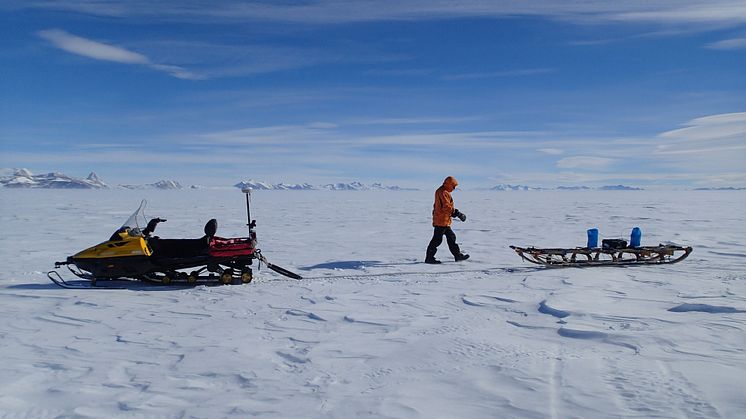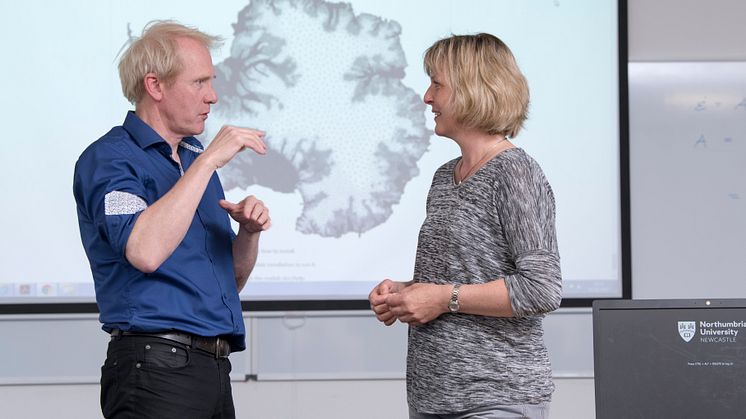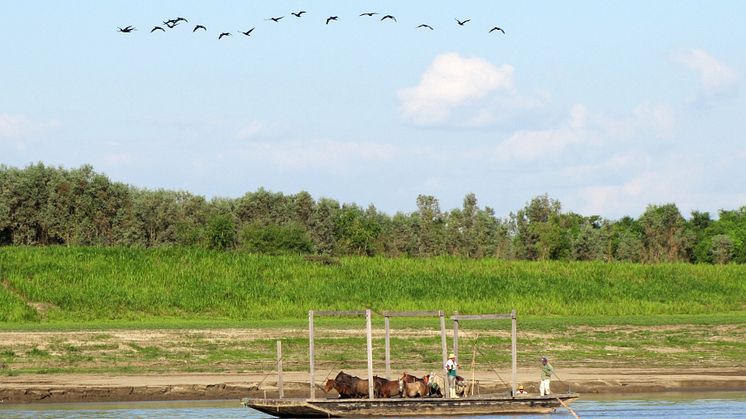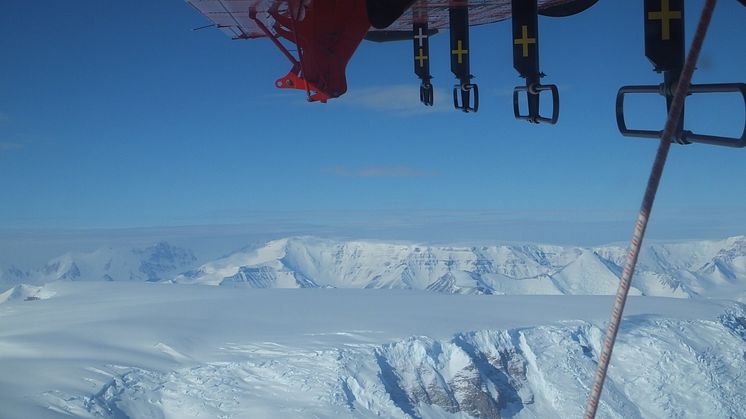
Press release -
Northumbria and Newcastle to train next generation of global change scientists
A new multi-million pound centre to train scientists to transform our understanding of planet Earth has been announced between Northumbria University and Newcastle University.
The ONE Planet Doctoral Training Partnership will draw on the research expertise and specialist facilities of both universities in Newcastle upon Tyne to provide a world-leading training environment tackling grand challenges in climate and environmental sciences.
Funding for ONE Planet was announced last night (Wednesday 10 October) by the Natural Environment Research Council (NERC) and comes in the same week that the Intergovernmental Panel for Climate Change declared that limiting global warming to 1.5°C requires rapid, far reaching and unprecedented changes in all aspects of society.
The universities’ world leading research and expertise in climate change, Earth systems and the environment were key to the success of the funding application.
Researchers joining the programme will study a diverse range of topics including earthquakes and volcanoes, pollution, weather extremes, sea level change, and frozen environments such as the ice caps and glaciers.
The partnership includes more than 40 local and national business, government and industry partners including the Environment Agency, the National Trust, Northumbrian Water Group, and a host of other engineering, environmental and charitable organisations.
Ulrich Salzmann, Professor of Palaeoecology in Northumbria University's Department of Geography and Environmental Sciences, said: “Our vision is to provide a training environment for independent research scientists and future leaders that develops innovative new ways to analyse and design the sustainable responses needed to address intensifying global change.
“We are very much looking forward to working together with Newcastle University on training the next generation of independent research scientists and future leaders as part of our new One Planet NERC Doctoral Training Partnership."
Hayley Fowler, Professor of Climate Change Impacts at Newcastle University, will lead the programme. She said: “To really understand how our planet is changing we need to work across subject disciplines and explore the connections between human activity and the Earth's natural systems.
“The period where humanity is now the key agent in planetary-scale change is termed ‘The Anthropocene’. Our researchers will learn in an interdisciplinary environment which will give them the skillset required to analyse and design the responses needed to address intensifying global change.”
“We are going to be working across science, engineering, statistics, agriculture, history, planning and many other disciplines. Both universities in the city have established world leading research in many different aspects of The Anthropocene and by working together we will produce researchers and leaders who can design the responses we need to the ways in which our planet is changing.”
Professor George Marston, Pro Vice-Chancellor for Research and Innovation at Northumbria University, said: “This award is a major success for environmental science in Newcastle’s universities and I am delighted that Northumbria and Newcastle continue to develop such powerful collaborations.
"The DTP will allow us to make a step change in training and research in Earth science, which is of fundamental importance within the context of increased concern around, for example, climate change. For Northumbria University, the award is further evidence of our burgeoning reputation for research, as recently illustrated by our dramatic improvement in the THE World University Rankings.”
The training programme will use specialist research facilities at both universities including Newcastle University’s Blyth Marine Station and research vessel, Urban Observatory, University Farms, Newcastle Helix, and Northumbria University’s Cold and Palaeo-environment laboratories.
There is scope too for researchers to influence governmental policy and there will also be an annual event that will share progress, results and debate with the public.
Topics
Northumbria is a research-rich, business-focused, professional university with a global reputation for academic excellence. To find out more about our courses go to www.northumbria.ac.uk
If you have a media enquiry please contact our Media and Communications team at media.communications@northumbria.ac.uk or call 0191 227 4604.













